Middle East on the up and up
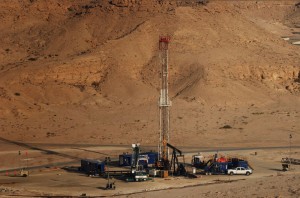
Big push for unconventionals expected in Saudi Arabia as Dubai emerges as regional oil hub for Africa, Far East
By Katie Mazerov, contributing editor
A healthy, growing offshore market and renewed drilling and production in brownfields with significant reserves project a positive 2013 for the Middle East. This despite reduced production in Iran due to international sanctions and the slow-to-moderate pace of Iraq to rebuild its infrastructure after years of wars and embargos.
Strong oil prices are attracting major international operators and contractors to the region, many of which are establishing headquarters in Dubai, which is situated to serve as a major hub, not only for the Middle East but also for launching operations in Africa and the Far East.
While the 2011 Arab Spring uprisings temporarily interrupted operations in some countries, normal production activities quickly resumed. Dayrates are stabilizing and ticking up, particularly in the jackup market, contractors report. Jackup rates vary greatly from country to country, depending on the age of the rig, and range from $65,000/day to more than $150,000/day.
Recent violence in Egypt and Libya appears to have had no impact on activity in those countries, although uncertainties remain in Libya. Operators and contractors are monitoring the political situation in Iran, but except for a few hot spots, most are carrying out operations with a “business as usual” attitude.
“The outlook in the Middle East is very positive, with the jackup market seemingly stabilizing, definitely up over the last few years,” said Hans Fikkema, drilling manager for Maersk Oil, which this year celebrated its 20th year in Qatar’s offshore Al Shaheen field. The field ranks among the largest in terms of volume hydrocarbons in place. According to market data, dayrates for standard jackups are running close to double what they were two years ago.
Maersk Oil entered into an exploration and production agreement with Qatar Petroleum in 1992 and now has more than 300 wells in the field, producing around 300,000 bbls/day, about a third of Qatar’s total oil production, Mr Fikkema said. Characterized by long, thin limestone and sandstone formations, the Al Shaheen field poses problematic drilling challenges that require very long horizontal wells. Maersk set a world record in 2008 by drilling a 40,320-ft (12.3 km) well in the field. The wells, in water depths ranging from 196 ft to 240 ft, are drilled primarily with conventional jackup rigs.
The company, which recently completed a 169-well development project in Qatar, also started up a rig in the country in late October and hopes to have additional rigs in the field next year, drilling new wells and working over existing wells. Maersk Oil also continues to look at other regional opportunities, Mr Fikkema said.
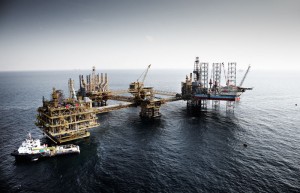
Aging jackup fleet
Of concern is the aging jackup fleet, which is going to require significant investment to maintain structural integrity to keep up with demand, Mr Fikkema noted. “Some of these rigs are 30 years old, and refurbishing them will cost $30 to $60 million, which will likely drive up dayrates. This actually makes some newbuilds competitive.
“As an operator, we are also concerned whether drilling contractors in the region will be able to man the rigs with sufficient, competent staff,” he continued.
“This is in light of the high-demand market, in combination with an aging work force across the industry. It is a concern from a health, safety and environmental perspective, as well as an efficiency perspective.”
Noble Corp is also upbeat about the outlook for the Middle East. “We see the region as a stable market for oil and gas production, with Saudi Arabia remaining the lead producer of oil while other countries continue to contribute to natural gas development,” said Therald Martin, vice president of the company’s Middle East/India division.
In its Q2 earnings report, Noble vice president of marketing Simon Johnson reported that the offshore industry is enjoying an all-time high for rig contracts, with half of the company’s jackups in the region committed under contracts through 2014 or beyond. The company anticipates increased activity in the United Arab Emirates (UAE) and Qatar.
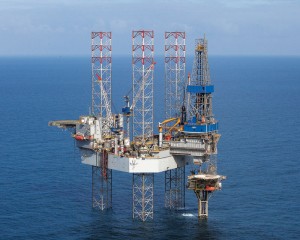
“With the latest increase in the market, we are seeing a need for shallow-water jackups, high-pressure, high-temperature services and high-specification jackups for offshore campaigns, with a major increase in Saudi Arabia,” Mr Martin said.” The company’s contracted jackups are averaging 60% oil production and 40% natural gas.
Of the jackup rigs Noble currently has under contract in the Middle East, one is in Oman, one is in Abu Dhabi, three are operating elsewhere in the UAE, four are in Qatar and three conventional jackups and two high-spec jackups are working in Saudi Arabia. Most wells feature a conventional design or involve workover operations. The company also has six high-specification jackups under construction, some of which could be contracted by operators in the region, as was the case with the Noble Scott Marks and the Noble Roger Lewis, currently deployed in Saudi Arabia.
KS Drilling PTE, headquartered in Dubai, is seeing more demand for oil drilling in the region, according to CEO Paul Brunet. The company has two land rigs in Kurdistan, with plans to add a third rig next year, one land rig each in Tunisia and Pakistan and a jackup in Egypt, drilling down to about 15,000 ft in water depths ranging from 180 ft to 250 ft in the Mediterranean Sea. All are drilling for oil.
Strategic hub in Dubai
“Dubai has always been a hub for the Middle East, but now it is becoming a center for global operations,” Mr Brunet said. “The country is centrally located, halfway between the US and the Far East, and logistics and communications are very good. Also, the country is politically very stable.”
The company’s land drilling operations involve classic, single-well, mainly non-deviated drilling. Drilling in Kurdistan is slow and difficult, taking five to six months per well, because of the formations containing many geological faults that make for complicated well programs, Mr Brunet said. Beyond the additional rig in Kurdistan, KS Drilling is not anticipating any new land drilling plans for next year but sees increased gas drilling opportunities in Saudi Arabia, where a big push is anticipated for natural gas production from unconventional shales to replace oil for power generation. “That will require 50 or 60 additional rigs,” he noted.
Mr Brunet also sees strong dayrates for jackups. “We are heading close to the previous peak of the market,” he said. “Rates are still about 10% off the highs of 2008 for newer rigs and 20% or more for older rigs. But, rates remain tight for the conventional land rigs we’re currently using, so we’re not getting much return on equity. Our future strategy is to differentiate ourselves with faster-moving, more productive rigs to offer higher performance and gain more from our operations.” KS Drilling is currently building new rigs at its facility in Indonesia.
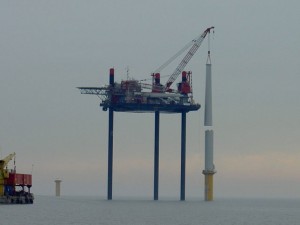
KS has three offshore newbuilds under construction, with the first scheduled for delivery in September 2013. “We are offering them in Saudi Arabia, but they are larger jackups, which most countries in the Middle East don’t require,” Mr Brunet noted.
Elsewhere in the region, the company has seen a reduction in gas drilling, particularly in Qatar, where the expansive South Pars/North Dome Field – the world’s largest gas field – which underlies the Al Shaheen oil field, is shared with Iran, Mr Brunet continued. A big factor in that shift has been the boom in shale gas production in the US, which has had a negative impact on international gas demand and hence drilling in the Middle East, he says. “The world was expecting to see the US import natural gas; now there is talk about the US exporting gas.”
Except for uncertainty in Tunisia, Libya and Syria, the region is relatively stable, with business as usual in most areas, he said. “We operated through the Arab Spring revolutions in Tunisia and Egypt, although we did close the office for three days during that time without impacting drilling. Egypt seems to be back operating as usual in the offshore sector, while Iraq has yet to sort out its infrastructure problems. Libya is a potential target market for us, but we are waiting until the situation there settles down to pursue any new drilling opportunities.”
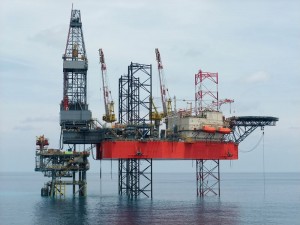
Expanding operations
Since its 2010 acquisition of Scorpion Offshore, Seadrill has expanded its footprint in the Middle East from its office in Dubai, said Svend Anton Maier, senior vice president, Seadrill Management Ame Ltd Dubai. The company has three premium jackup rigs operating in the Al-Khafji Joint Operating (KJO) zone, a 50/50 operation in the Persian Gulf between Saudi Aramco and Kuwait Oil and Gas along the border between Kuwait and Saudi Arabia. A fourth rig was recently relocated from the KJO to Qatar, and a new jackup arrived in October from Singapore and is working for Saudi Aramco.
“We made a strategic move to come to Dubai in January 2011, and it is proving to be an ideal hub for operating both our Middle East and West African operations,” Mr Maier said. “The market is looking very good now. We are seeing a positive trend in dayrates, and we anticipate more activity and opportunities from Saudi Aramco. We also believe Qatar will be a very interesting area for us going forward, with a lot of 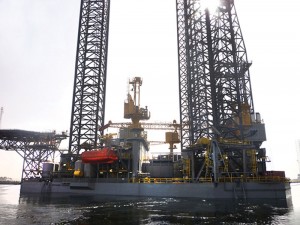 opportunity in the coming year.”
opportunity in the coming year.”
The KJO is an established region, where the drilling is in 350 to 400 ft of water and “fairly straightforward and not too technically challenging,“ Mr Maier continued. Wells typically involve a combination of horizontal and vertical drilling.
“Our biggest challenge is on the people side,” he said. “Saudi Arabia, for example, requires the use of local personnel, and it is sometimes difficult to find well-qualified people to execute our operations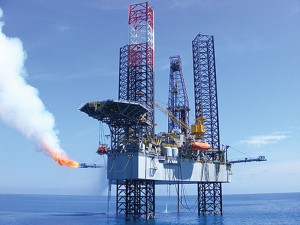 safely and efficiently.”
safely and efficiently.”
While last year’s Arab Spring uprisings slowed operations a bit and recent unrest has affected other countries in the region, Saudi Arabia and Kuwait have remained stable, despite occasional disturbances in the Hormuz Strait at the entrance to the Persian Gulf, Mr Maier said.
Iranian embargo impact
Service companies also are seeing a big increase in offshore activity, despite the fact that there is virtually no deepwater drilling in the Middle East, according to Foroohar Farzadnia, corporate market and business development manager for Abu Dhabi-based service company AlMansoori Specialized Engineering. “We see the offshore market doubling by 2015, with the Persian Gulf countries of Saudi Arabia, Kuwait and Qatar, in particular, increasing oil and gas production as Iranian oil production has declined by more than a million bbls/day. Tankers can’t get licensed to transport the oil from Iran.”
The reduction in Iranian gas production also is offsetting the boom in US shale gas production that has negatively impacted natural gas drilling in the region, Mr Farzadnia said. He expects gas operations in Qatar will ramp up in 2013 and 2014. He also anticipates increased activity in Oman. Overall, offshore oil and natural gas production are about even, he said.
Onshore, however, oil is dominant, running about 70% versus 30% gas production, he estimated. Dayrates are much lower for the large number of conventional land rigs in the region, averaging $35,000, with workover rigs averaging $24,000/day. Brownfields are seeing increased workover activity, as well as new drilling for oil, as prices entice operators to tap wells that were abandoned due to declining production or not produced due to lack of technology.
“Most of the reservoirs in this region are layered, with the oil and gas on top of each other,” explained Mr Farzadnia, who also expects fields to open up in North Iraq and Kurdistan. “Now, operators are wanting to go back and start drilling in these fields again, which is creating opportunities for 1,000- and 1,200-hp rigs.” The activity is primarily single-well directional drilling. For the brownfield work, AlMansoori formed a 50/50 joint venture with Key Energy Services in 2010.
Increased workover activity
Scott Myers, international business development manager for Key Energy, says the company is enjoying increased activity for workovers, re-completions, re-entry work, sidetracks, horizontal drilling services and other well servicing needs in its operating areas of Bahrain and Oman. “In many cases, operators are finding it more economical to reactivate older wells and fields rather than drill new wells. We view the Middle East as a large opportunity for us, as most of the big oil-producing fields are maturing,” Mr Myers said. Significant oil reserves and associated natural gas are located in Bahrain’s Awali Oil Field.
Technologically, Mr Myers noted, “We believe we bring a strong element of technology into our market segment in terms of our KeyView System, a job activity monitoring system that helps our customers increase efficiency and enhance safety. The system monitors equipment and crew activities, helping to ensure that procedures are followed and downtime is reduced.”
The system is equipped with alarms that alert rig operators to potential safety issues, equipment failures and the presence of well control issues, such as sour gas. “Our capabilities for remote monitoring add tangible value for our customers’ operations, especially in the more remote areas where we work,” Mr Myers said. “In addition, our exclusive Hydra-Walk automated pipe-handling system enhances safety by eliminating much of the manual pipe-handling from the operation.”
For the region overall, Mr Myers said, “We believe that the Middle East offers significant opportunity for us over the next several years. We are evaluating projects in at least three other countries in the Middle East and North Africa. We have seven rigs currently operating in the region, and we could increase that next year.”
KeyView and Hydra-Walk are registered terms of Key Energy Services.

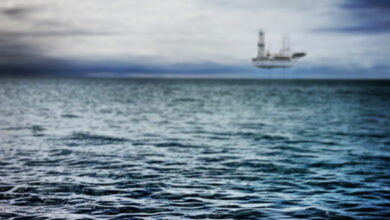
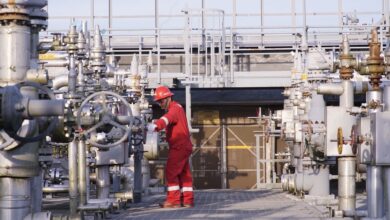
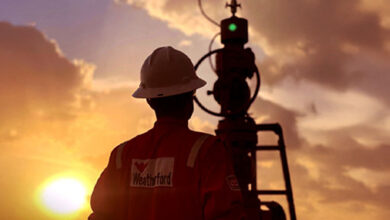
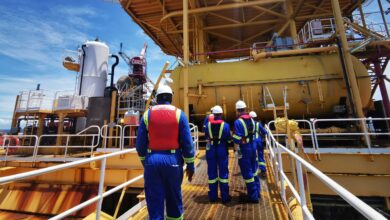
Dear sir
My name is Charles Sarkis . I work as a consultant and projects finder in Iraq . I have been contacted by the GM of the oil and gaz ministry to get a drilling company for an oil field in baghdad . The company must have the capabilities to drill as deep as 3000 m .
As I read that you have this know-how I send you this e-mail to ask you if you are interrested in working in Iraq .
If so plz inform me in order to coordinate any potential work .
Best Regards
Charles Sarkis.
+961 3 587859
I am intrested to go iraq for job but what a job & salery & with rotations. please update me as soon as possible i am working in DPC Dubai petroleum compnay if i get good packaed i will be with you Thank you sir
Regards,
Mahamood